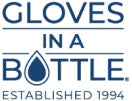
Eczema Relief Cream
Share
Eczema is a very common skin condition and it affects millions of people at all different stages of life. Even though medical science isn’t sure what exactly causes eczema, there are theories saying it could be caused by a combination of genetics and environmental triggers that cause cells in our immune system to overreact and this overreaction can lead to the skin becoming inflamed and irritated. When it comes to treating your eczema, your dermatologist will work with you on finding out what triggers the symptoms. Then they will help create a treatment plan to help control your eczema based on the severity of it and how well it responds to the available treatments.
Common Treatments for Eczema
- One of the first, most common treatments is wet dressing therapy. During this treatment your doctor would apply a corticosteroid to the affected areas of the skin. Then once the cream is applied they would add a wet bandage over the cream and then follow up with adding a dry bandage over the wet one. This treatment allows the medication and moisture to get into the skin.
- Your dermatologist may prescribe an oral medication to help your eczema. It works by slowing your immune systems response to whatever your eczema trigger is, this can help reduce the severity of your flare up. Like every medication there could be side effects. You should talk to your dermatologist about your concerns, if you have any.
- If oral medications aren’t your thing and your eczema is severe enough, an injectable medication might be an option. This medication is called a biologic drug. It is made up of lab created proteins derived from living tissues or cells. Biologic drugs work a little differently than oral medications; these medications can actually block the area of the immune system that overreacts and causes the inflammation in your skin. Controlling this response can help with the inflammation caused by eczema.
- Another treatment option is phototherapy or light therapy. The way this works is your dermatologist would use a machine that emits UV light over the affected area. The UV light suppresses the overactive immune system and again this will help control the inflammation that causes your eczema. The downside of light therapy is that it can be time consuming and it puts you at higher risk of getting skin cancer.
- These treatments above are common but your dermatologist may first have you try to control your eczema with a topical cream and moisturizing daily. There over the counter products you can use and, if needed, you may be prescribed a topical eczema relief cream. Moisturizing your skin is an essential step to controlling your eczema. Eczema can damage your skin barrier and when your skin barrier is damaged your skin becomes more sensitive to allergens, bacteria and other irritants. This is why some dermatologists are recommending their patients use a shielding lotion like Gloves In A Bottle. These lotions bond with your outer layer of skin and create a protective barrier that can help your skin keep out those pesky irritants and help your skin to retain moisture better.
- One of the first most common treatments is wet dressing therapy. During this treatment your doctor would apply a corticosteroid to the affected areas of the skin. Then once the cream is applied they would add a wet bandage over the cream and then follow up with adding a dry bandage over the wet one. This treatment allows the medication and moisture to get into the skin.
- Your dermatologist may prescribe you an oral medication to help your eczema. Like every medication there could be side effects to taking one and you should talk to your dermatologist about your concerns if you have any. It works by slowing your immune systems response to whatever your eczema trigger is, this can help reduce the severity of your flare up.
- If oral medications aren’t your thing and your eczema is severe enough, an injectable medication can be an option for you. This medication is called a biologic drug and it is made up of lab created proteins derived from living tissues or cells. Biologic drugs work a little differently than oral medications; these medications can actually block the area of the immune system that overreacts and causes the inflammation in your skin. Controlling this response can help with the inflammation caused by eczema.
- Another treatment option is phototherapy or light therapy. The way this works is your dermatologist would use a machine that emits UV light over the affected area of the. The UV light suppresses the overactive immune system and again this will help control the inflammation that causes your eczema. The downside of light therapy is that it can be time consuming and it puts you at higher risk of getting skin cancer.
- These treatments above are common but your dermatologist may first have you try to control your eczema with a topical cream and moisturizing daily. There over the counter products you can use and if needed you may be prescribed a topical eczema relief cream. Moisturizing your skin is an essential step to controlling your eczema. Eczema can damage your skin barrier and when your skin barrier is damaged your skin becomes more sensitive to allergens, bacteria and other irritants. This is why some dermatologists are recommending their patients to use a shielding lotion like Gloves In A Bottle. These lotions bond with your outer layer of skin and create a protective barrier that can help your skin keep out those pesky irritants out and help your skin to retain moisture better.
Eczema can affect your quality of life but with a little help from your dermatologist you can take control of your eczema.
